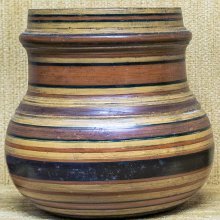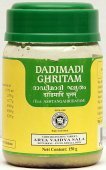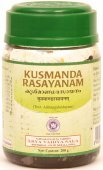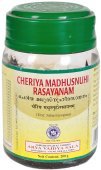Dhanya, Dhanyā, Dhānya, Dhānyā, Dhaṇya: 35 definitions
Introduction:
Dhanya means something in Buddhism, Pali, Hinduism, Sanskrit, Jainism, Prakrit, the history of ancient India, Marathi, Hindi, biology. If you want to know the exact meaning, history, etymology or English translation of this term then check out the descriptions on this page. Add your comment or reference to a book if you want to contribute to this summary article.
Dhanya has 34 English definitions available.
Alternative spellings of this word include Dhany.
Images (photo gallery)
Languages of India and abroad
Sanskrit dictionary
[Deutsch Wörterbuch]
Source: Cologne Digital Sanskrit Dictionaries: Böhtlingk and Roth Grosses Petersburger WörterbuchDhanya (धन्य):—
--- OR ---
Dhānya (धान्य):—(von dhānā) [Uṇādisūtra 5, 48.] [Śāntanācārya’s Phiṭsūtrāṇi 4, 8.]
1) adj. in Getreidekörnern bestehend, daraus bereitet u.s.w.: bīja [Ṛgveda 5, 53, 13.] rasa [Atharvavedasaṃhitā 2, 26, 5.] —
2) n. a) Getreide [Amarakoṣa 2, 9, 21.] [Hemacandra’s Abhidhānacintāmaṇi 1168.] [Anekārthasaṃgraha 2, 368.] [Medinīkoṣa y. 32.] dha.te dhā.yaṃ1.patyate vasa.yaiḥ [Ṛgveda 6, 13, 4.] [Atharvavedasaṃhitā 3, 24, 2. 4. 5, 29, 7. 6, 50, 1.] daśa grāmyā, ṇe dhānyāni [The Śatapathabrāhmaṇa 14, 9, 3, 22.] [Śāṅkhāyana’s Brāhmaṇa 11, 8.] [Ṣaḍviṃśabrāhmaṇa 5, 5.] [Kātyāyana’s Śrautasūtrāṇi 22, 11, 1.] [Kauśika’s Sūtra zum Atuarvaveda 20.] vaiśyānāṃ (jyaiṣṭhyaṃ) dhānyadhanataḥ [Manu’s Gesetzbuch 2, 155.] yathoddharati nirdātā kakṣaṃ dhānyaṃ ca rakṣati [7, 110.] dhānyānāmaṣṭamo bhāgaḥ ṣaṣṭho dvādaśa eva vā (ādeyo rājñā) [7, 130. 10, 120.] dhānye (kusīdavṛddhiḥ) nātikrāmati pañcatām [8, 151.] tatrāparivṛtaṃ dhānyaṃ vihiṃsyuḥ paśavo yadi [238.] harite dhānye [330.] paripūteṣu dhānyeṣu [331.] pulākāścaiva dhānyānām [10, 125.] pulakā (lies: pulākā) iva dhānyeṣu [Pañcatantra III, 99. -] [Rāmāyaṇa 1, 1, 90. 5, 5. 2, 50, 8.] [Suśruta 1, 70, 5. 199, 18. 20.] [Varāhamihira’s Bṛhajjātaka S. 4, 23. 8, 10.] (dṛṣṭā cābhivyaktiḥ) avaghātena dhānye taṇḍulasya [Scholiast] zu [Kapila 1, 121.] palya [LĀṬY. 8, 4, 14.] khala [Kātyāyana’s Śrautasūtrāṇi 22, 3, 44.] pātra [Śāṅkhāyana’s Gṛhyasūtrāṇi 1, 28.] [LĀṬY. 8, 2, 5. 3, 7. 8.] koṣa [Rāmāyaṇa 2, 36, 7.] da [Manu’s Gesetzbuch 4, 232.] kūṭa [Varāhamihira’s Bṛhajjātaka S. 44 (43), 6.] dhānyārgha Kornpreis [7, 1. 8, 5. fgg.] dhānyān (m.!) [Mahābhārata 13, 5468.] guptadhānyā adj. f. [?3, 14674. Nach Suśruta 1, 195. fgg.] sind zu den dhānya die drei Ordnungen śālayaḥ, ṣaṣṭikāḥ und vrīhayaḥ zu zählen, die übrigen essbaren Körnerfrüchte werden unter der Bezeichnung kudhānya zusammengefasst. Als Gewicht so v. a. vier Sesamkörner [ŚUBHAṂKARA im Śabdakalpadruma] Vgl. kauśī, grīṣma, tṛṇa, dhana . — b) Koriander [Hemacandra’s Anekārthasaṃgraha] [Medinīkoṣa] [Ratnamālā 48.] — c) Cyperus rotundus (paripela) [Śabdakalpadruma] —
3) f. ā Koriander [Ratnamālā 48.]
--- OR ---
Dhanya (धन्य):—
1) [Z. 9] vgl. [KUVALAY. 26] und die Erkl. des Comm.
--- OR ---
Dhānya (धान्य):—vgl. pūti; — dhānyaka vgl. hema .
--- OR ---
Dhanya (धन्य):—
1) [Z. 6. fg.] besser wohl hundert werth.
--- OR ---
Dhānya (धान्य):—vgl. auch su .
Source: Cologne Digital Sanskrit Dictionaries: Sanskrit-Wörterbuch in kürzerer FassungDhanya (धन्य):—, dhania —
1) Adj. (f. ā) — a) Beute — , Besitz habend oder bringend , schätzereich. — b) am Ende eines Comp. reich an , voller [Indische sprüche 7792.] — c) Glück bringend , — verheissend. — d) sich im Glück befindend , beglückt , glücklich. tara glücklicher als (Instr.). — e) heilsam , gesund [Carakasaṃhitā 6,27.] — f) *ungläubig ; m. ein Atheist. —
2) m. — a) Bez. der Vaiśya in Krauñcadvīpa [Wilson's Uebersetzung des Viṣṇupurāṇa ,4,53.] — b) ein best. über Waffen gesprochener Zauberspruch. — c) Vatica robusta [Rājan 9,83.] — d) Nomen proprium verschiedener Manner. —
3) f. ā — a) *Amme. — b) *Myrobalanenbaum. — c) Nomen proprium der Gattin Dhruva’s [VP.².1,178.] —
4) *f. ( ā) und n. Koriander. —
5) n. Schatz.
--- OR ---
Dhānya (धान्य):—1. (von dhana) das Reichsein [Dhātupāṭha 20,3.]
--- OR ---
Dhānya (धान्य):—2. und dhānia —
1) Adj. in Gedreidekörnern bestehend , daraus bereitet. —
2) n. — a) Sg. Pl. Getreide , Getreideart. Ausnahmsweise auch m. Am Ende eines adj. Comp. f. ā. — b) ein best. Gewicht , = 4 Sesamkörner. — c) *Koriander. — d) *Cyperus rotundus. — e) *eine Art Haus [Galano's Wörterbuch] —
3) *f. ā Koriander.
Sanskrit, also spelled संस्कृतम् (saṃskṛtam), is an ancient language of India commonly seen as the grandmother of the Indo-European language family (even English!). Closely allied with Prakrit and Pali, Sanskrit is more exhaustive in both grammar and terms and has the most extensive collection of literature in the world, greatly surpassing its sister-languages Greek and Latin.
See also (Relevant definitions)
Starts with (+131): Dhanya beeja, Dhanya khushk, Dhanya khushk bariyan, Dhanya khusk, Dhanya Vagha, Dhanya-hirany-adeya, Dhanya-hiranya, Dhanya-masha, Dhanyabhanu, Dhanyabhedam, Dhanyabhiksha, Dhanyabhra, Dhanyabhraka, Dhanyabija, Dhanyacala, Dhanyacaladidanatattva, Dhanyacamasa, Dhanyacarin, Dhanyacaura, Dhanyachala.
Ends with (+84): Adhanya, Agradhanya, Agrimadhanya, Analpadhanya, Anyapadarthapradhanya, Apradhanya, Aranyadhanya, Ashtadashadhanya, Asitadhanya, Avapitadhanya, Bahudhanya, Bandhanya, Bhandhanya, Bhrishtadhanya, Bijadhanya, Chatradhanya, Chattradhanya, Cillaredhanya, Devadhanya, Dhanadhanya.
Full-text (+464): Dhanna, Dhanyaka, Dhanyasthi, Dhanyammanya, Dhanyacala, Dhanyamaya, Trinadhanya, Dhanyata, Devadhanya, Dhanyasara, Dhanyasamgraha, Dhanyamla, Dhanyashirshaka, Haumyadhanya, Dhanyottama, Dhania, Dhanyartha, Dhanyayana, Dhanyavada, Dhanyodaya.
Relevant text
Search found 80 books and stories containing Dhanya, Dhanyā, Dhānya, Ḍhāṇyā, Dhānyā, Dhaṇya; (plurals include: Dhanyas, Dhanyās, Dhānyas, Ḍhāṇyās, Dhānyās, Dhaṇyas). You can also click to the full overview containing English textual excerpts. Below are direct links for the most relevant articles:
Sahitya-kaumudi by Baladeva Vidyabhushana (by Gaurapada Dāsa)
Text 4.21 < [Chapter 4 - First-rate Poetry]
Text 11.42 < [Chapter 11 - Additional Ornaments]
Text 11.27 < [Chapter 11 - Additional Ornaments]
Garga Samhita (English) (by Danavir Goswami)
Verse 6.2.32 < [Chapter 2 - Residence in Śrī Dvārakā]
Verse 4.7.5 < [Chapter 7 - The Story of the Ayodhya Women]
Verse 6.17.6 < [Chapter 17 - Śrī Śrī Rādhā and Kṛṣṇa Meet at Siddhāśrama and the Nature of Śrī Rādhā’s Love Is Revealed]
Trishashti Shalaka Purusha Caritra (by Helen M. Johnson)
Seventeen kinds of grain < [Notes]
Part 3: Dhanya < [Chapter X - Stories of Daśārnabhadra, Śālibhadra and Dhanyaka]
Part 9: Surādeva < [Chapter VIII - Initiation of ṛṣabhadatta and devānandā]
Tattvartha Sutra (with commentary) (by Vijay K. Jain)
Verse 7.29 - The transgressions of the minor vow of limiting possessions < [Chapter 7 - The Five Vows]
Hari-bhakti-kalpa-latikā (by Sarasvati Thkura)
Bhajana-Rahasya (by Srila Bhaktivinoda Thakura Mahasaya)
Related products
(+1 more products available)






